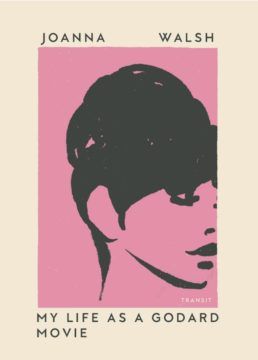Jamie Hood at the LARB:
 In My Life, Walsh remembers a time when “instead of dying I went to Paris,” a providentially budgeted eleventh-hour day trip consisting of “ten hours’ travel and eight hours’ walking: eighteen hours: a day, a day that saved my life.” The transformation by the pandemic of Paris — of crowds, of urban bustle, of the tactile delectations of flânerie — from a font of salvation into a space of mortal dangers and morbid anxieties appears as a kind of violent inversion. But this alienated affect sits comfortably in Walsh’s oeuvre: the founding condition of her writings is a consciousness and interrogation of feelings of geographic, interpersonal, and emotional displacement. Her women navigate their worlds in the exilic mode. Walsh’s settings are intermediary or quite literally transit/ory: hers is a literature of the cafe, the train, the bus, the hotel. That the principal concerns of Godard’s early period were the ennui and political uncertainties of an interstitial generation (“the children of Marx and Coca-Cola,” as Godard notoriously identifies them in 1966’s Masculin Féminin), the defamiliarization of romance, and a kind of uncanny French apocalyptica (think, for example, of the remarkable, and remarkably long, single-take traffic scene in Week-end) establishes an especially fructuous ground for Walsh’s philosophies of the uprooted.
In My Life, Walsh remembers a time when “instead of dying I went to Paris,” a providentially budgeted eleventh-hour day trip consisting of “ten hours’ travel and eight hours’ walking: eighteen hours: a day, a day that saved my life.” The transformation by the pandemic of Paris — of crowds, of urban bustle, of the tactile delectations of flânerie — from a font of salvation into a space of mortal dangers and morbid anxieties appears as a kind of violent inversion. But this alienated affect sits comfortably in Walsh’s oeuvre: the founding condition of her writings is a consciousness and interrogation of feelings of geographic, interpersonal, and emotional displacement. Her women navigate their worlds in the exilic mode. Walsh’s settings are intermediary or quite literally transit/ory: hers is a literature of the cafe, the train, the bus, the hotel. That the principal concerns of Godard’s early period were the ennui and political uncertainties of an interstitial generation (“the children of Marx and Coca-Cola,” as Godard notoriously identifies them in 1966’s Masculin Féminin), the defamiliarization of romance, and a kind of uncanny French apocalyptica (think, for example, of the remarkable, and remarkably long, single-take traffic scene in Week-end) establishes an especially fructuous ground for Walsh’s philosophies of the uprooted.
more here.
